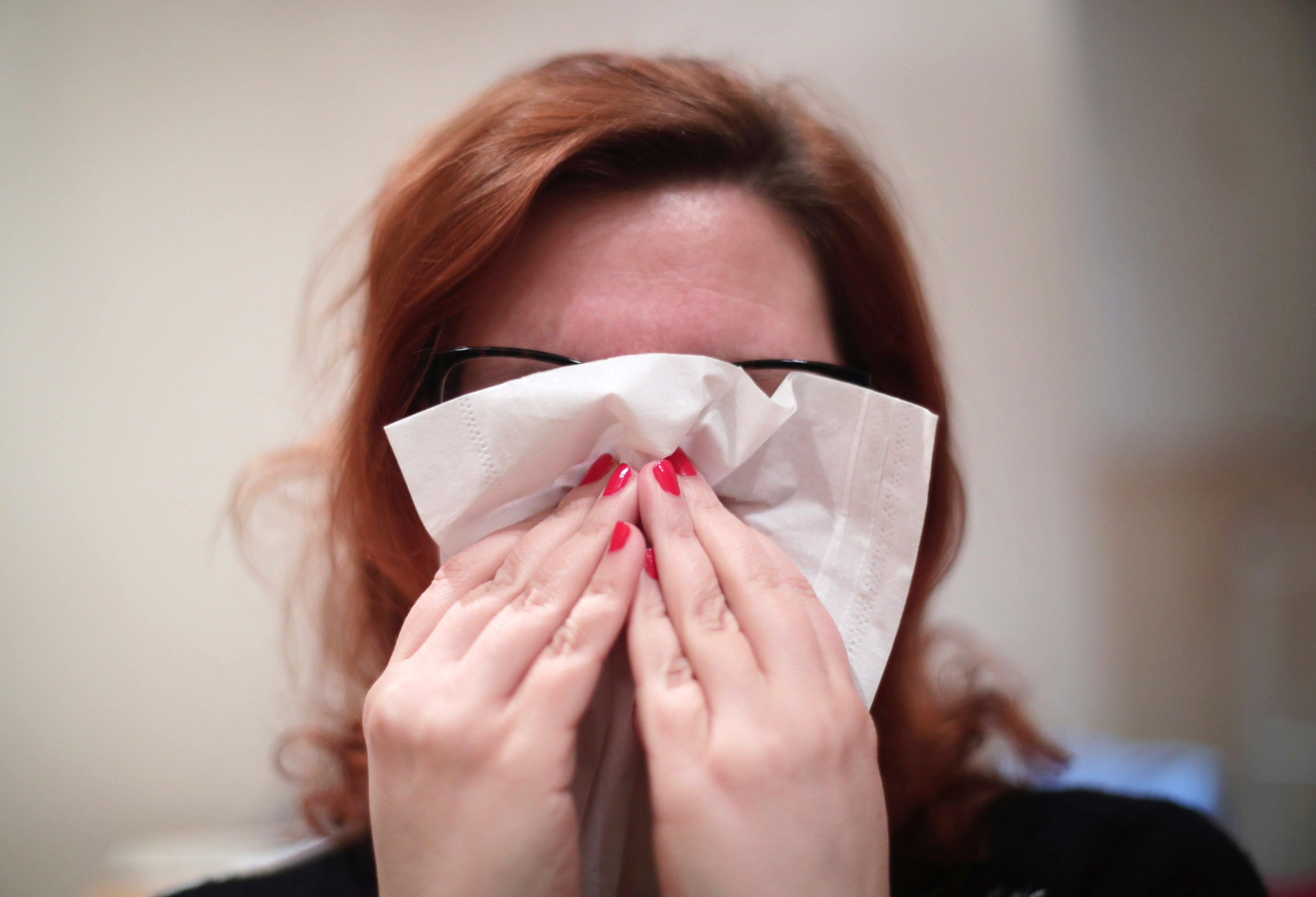Half of people with allergies have not tried to medicate them, poll claims
Nearly one-quarter of sufferers sometimes struggle to breath due to reaction

Your support helps us to tell the story
From reproductive rights to climate change to Big Tech, The Independent is on the ground when the story is developing. Whether it's investigating the financials of Elon Musk's pro-Trump PAC or producing our latest documentary, 'The A Word', which shines a light on the American women fighting for reproductive rights, we know how important it is to parse out the facts from the messaging.
At such a critical moment in US history, we need reporters on the ground. Your donation allows us to keep sending journalists to speak to both sides of the story.
The Independent is trusted by Americans across the entire political spectrum. And unlike many other quality news outlets, we choose not to lock Americans out of our reporting and analysis with paywalls. We believe quality journalism should be available to everyone, paid for by those who can afford it.
Your support makes all the difference.More than half of Britons experience allergies – and two in five of these say their seasonal flare-ups started earlier than usual this year. But many add they have given up trying to combat the irritating reactions.
A poll of 2,000 UK adults found tree pollen, grass, and dust mites to be the most common components causing symptoms to flare up.
More unusual causes of things like dry eyes and sneezing came from wearing jewellery, getting a tattoo – and even wine.
Of those who did experience seasonal allergies, the warmer months from May to August were when they were worst hit, and one in four (26 per cent) of these often experienced severe reactions.
It emerged more than half (54 per cent) of those with allergies had learnt to live with their symptoms and had not explored ways to keep them at bay.
Seven in 10 (71 per cent) had even diagnosed themselves with an allergy.
Anshu Kaura, a pharmacist at LloydsPharmacy, which commissioned the research, said: “It’s clear from our research that allergic reactions are not only extremely common amongst Brits, but are also not mild and can often be really debilitating, making it incredibly difficult to continue with their everyday lives.
“That’s why it is so important for those who do live with allergies – especially those that flare up seasonally – to speak to a pharmacist or GP to know exactly what is causing them, so they can get the best possible support to mitigate the symptoms.”
Pollsters found itchiness, a runny nose and watering eyes were the most severe and common impacts of seasonal allergies. Nearly one in four (23 per cent) of those who experienced allergies said they could make them struggle for breath.
Twenty per cent of allergic respondents said their reactions to seasonal changes limited what they felt they could confidently do in everyday life. In fact, nearly two-thirds (63 per cent) had actively avoided doing something because they are concerned about the impact of an allergy.
More than one in three (36 per cent) had avoided going outside at certain times of the day – and 25 per cent had ducked out of picnics. Some 13 per cent admitted having declined a date because they were self-conscious.
Three in five (61 per cent) Brits who have seasonal allergies have consulted a professional about their problems because they have been so bad.
Of these, nearly half visited their GP (46 per cent), a 26 per cent sought advice from a specialist, and 20 per cent paid a visit to a local pharmacist.
Despite this, more than one-quarter (28 per cent) said they found it hard to know who to speak with, and 33 per cent claimed it was difficult to find information about specific allergies, the research conducted via OnePoll found.
The most common claimed allergies
- Tree pollen
- Grass
- Dust mites
- Insect bites
- Animal dander (hair, skin)
- Insect stings
- Mould
- Penicillin
- Jewellery
- Laundry detergent
- Shellfish
- Cleaning chemicals
- Sunlight
- Cow’s milk
- Fruit
- Ibuprofen
- Pollinated fruit
- Hair dye
- Aspirin
- Sweat


Join our commenting forum
Join thought-provoking conversations, follow other Independent readers and see their replies
Comments